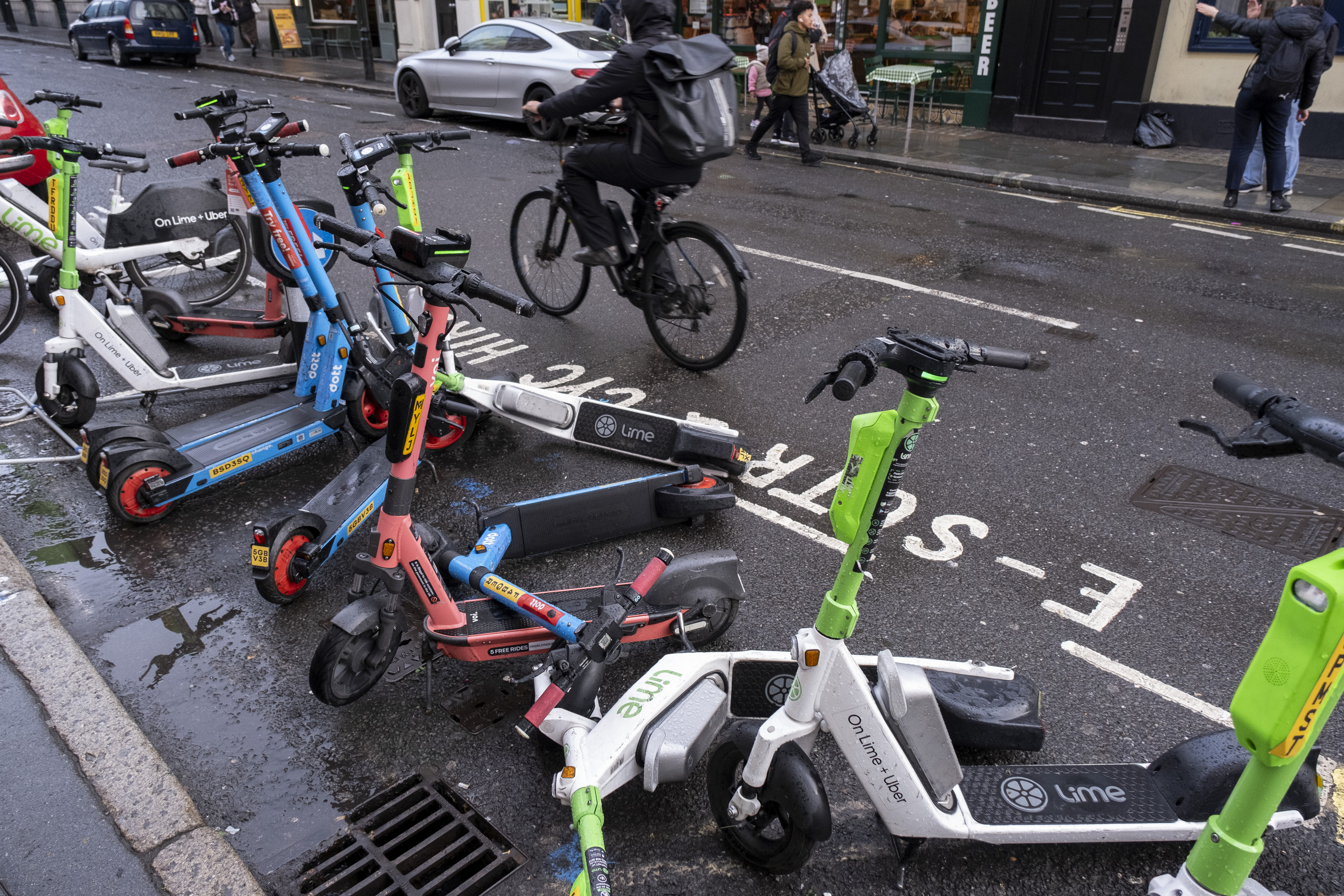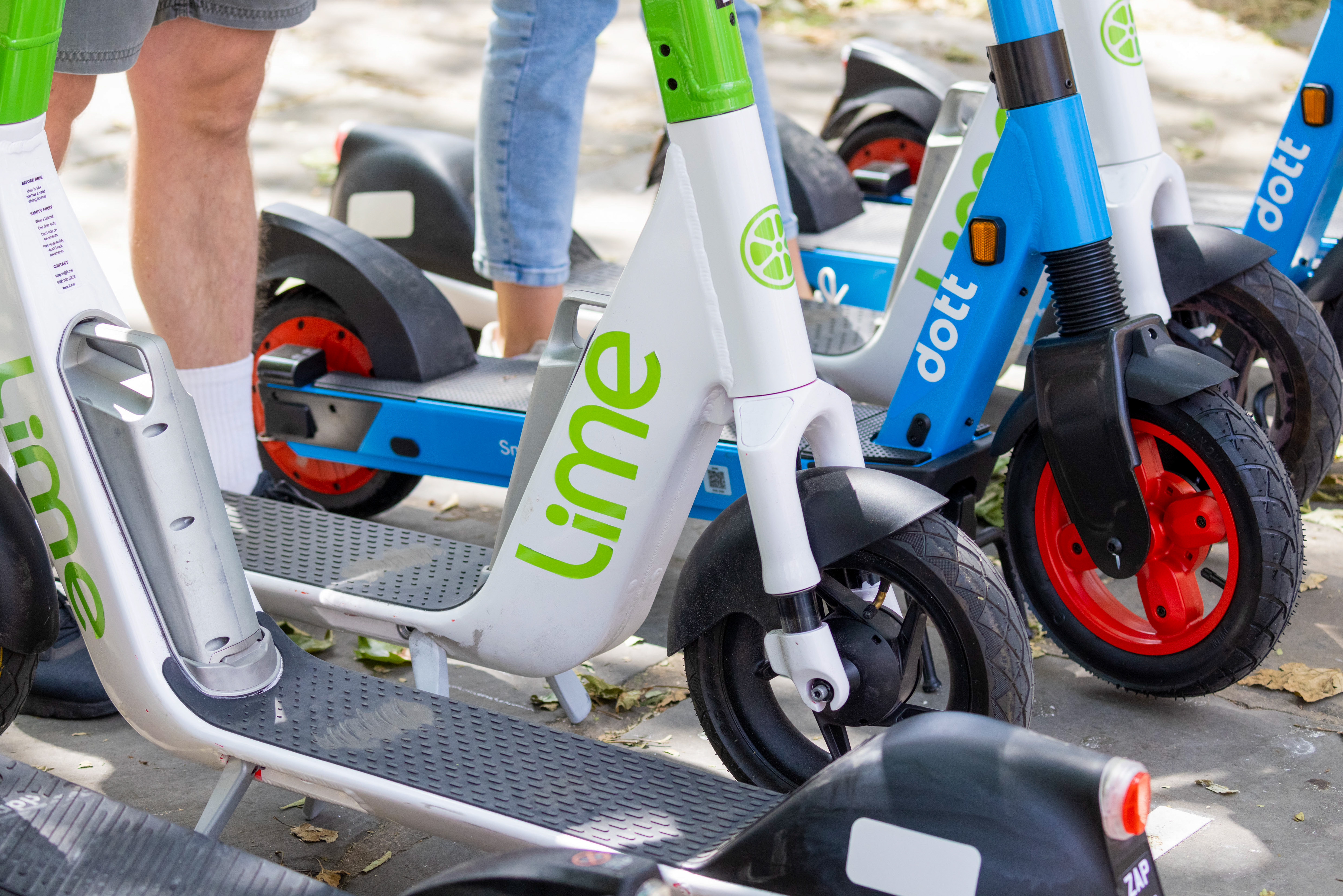What the death of Superpedestrian way for the e-scooter trade

At an all-hands assembly simply sooner than Thanksgiving, Superpedestrian’s CEO Assaf Biderman instructed group of workers the electrical scooter corporate used to be gearing up for pristine investment and a merger. Control would announce the inside track on January 1, however till later, Superpedestrian had to journey incline. A handful of crowd misplaced their jobs, together with some executives in Europe. The left-overs have been instructed to retain rapid.
Not up to a day nearest, Superpedestrian would faint.
“And then, of course, we got the bad news [on December 15],” one former worker at Superpedestrian instructed TechCrunch in a telephone interview. “Merger and funding didn’t go through. We have to close it all down. See you later.”
Superpedestrian isn’t the one shared scooter industry to falter or close indisposed this yr. Fowl, Micromobility.com, Tier and Spin are all an existential query at this level. Era each and every of those corporations had their very own explicit issues, a mix of homogeneous components resulted in their death, together with adverse town laws, top operational prices and hiring bloat as a repercussion of VC investment.
TechCrunch told to a number of former Superpedestrian workers at the situation of anonymity. Thru the ones interviews, and talks with trade mavens, now we have considered a trend rising — one that means the shared electrical scooter industry as we are aware of it is lifeless.
Superpedestrian’s downfall is emblematic of issues inside the shared micromobility trade.
The corporate instructed group of workers that it had to wrap operations by way of December 31 and that it used to be exploring the sale of its Ecu industry. All of Superpedestrian’s 170 workers have been drop, aside from a skeleton staff of operations group of workers to drag scooters off the streets. One such worker instructed TechCrunch they didn’t know whether or not Superpedestrian had a plan for its property — neither the powerful Hyperlink scooters, nor the diagnostic or geographic device that poised Superpedestrian except its competition.
“We were told that if anybody had a Superpedestrian scooter and wasn’t within 50 miles of a Superpedestrian market, we were supposed to keep it or dispose of it ourselves,” some other former worker instructed TechCrunch, noting that the scooters would now not function as soon as the corporate close indisposed.
Workers at Superpedestrian say they felt blindsided by way of the shutdown and a shortage of transparency from management. Alexander Berg, Superpedestrian’s director of U.S. operations, instructed group of workers right through a Zoom name that the cause of the shutdown used to be monetary, however he didn’t journey into trait.
Neither Berg nor Biderman answered to TechCrunch’s request for more info.
Superpedestrian used to be a spinout from MIT’s Senseable Town Lab that introduced shared scooters in 2020. The startup as soon as held a lot word, running in top-tier U.S. towns like Seattle, Los Angeles, Baltimore, Detroit and Chicago, in addition to in Austria, Italy, Sweden and Portugal.
The startup final raised a $125 million Sequence C in February 2022 to amplify Pedestrian Protection, Superpedestrian’s complex rider support gadget that might come across and proper unsafe using conduct, and garnered a name for being a fashion town spouse with a 100% compliance report. Superpedestrian additionally boasted a diagnostic device that might aid it function at a cheaper price construction, and a beefy, long-lasting scooter that if truth be told felt secure to experience.
However it wasn’t plethora to generate the call for had to maintain the industry.
What went incorrect at Superpedestrian
Symbol Credit: Horacio Villalobos#Corbis/Corbis by means of Getty Pictures
As Berg instructed workers right through that fateful assembly in December, Superpedestrian’s maximum instant disease used to be a monetary one. Regardless of securing loans from two of its backers, Jeffries and Antara, in July and October, respectively, Superpedestrian couldn’t bolster operations.
A number of former workers on the corporate constituent Superpedestrian’s failure to a bunch of problems, from shortage of funding into advertising and marketing and successful proposals to missteps amongst higher control to the poisoned smartly of VC-backing.
“Superpedestrian made a miscalculation,” a 3rd former Superpedestrian worker instructed TechCrunch. “We thought we could be like Elon Musk and sell an awesome product without investing in marketing.”
Superpedestrian didn’t group of workers out its coverage proposals crew with crowd who may just method relationships with town officers and prod for extra favorable law. That and a shortage of selling intended Superpedestrian failed to draw riders, and it didn’t win plethora town allows in revenue-generating markets.
“The scale of markets where we could be profitable was low, and the profits we were getting were just beyond breaking even,” the worker persisted.
Others attributed the failure to a shortage of coherent management.
“Our CEO was never focused on scooters. He wasn’t a scooter guy,” one in every of our resources instructed TechCrunch. “He spent a good year trying to get people to buy our software, doing software-as-a-service, and he missed the boat on understanding that it was the permits that were worth money.”
That supply mentioned Biderman pitched Superpedestrian’s diagnostic and fleet control device to car and alternative transportation corporations, making an attempt to diversify profit streams sooner than even getting the core scooter-sharing industry proper.
TechCrunch additionally discovered that there used to be an inside fight at Superpedestrian between those that have been idealistic about being compliant town companions, and those that concept the startup couldn’t find the money for to run a industry that method anymore.
“We started to cut corners with compliance,” probably the most former workers instructed TechCrunch, noting that the startup would put extra scooters at the field in positive towns than have been accredited. The supply mentioned week this took place a few occasions at Superpedestrian, it used to be same old follow at Fowl.
That supply additionally famous that Superpedestrian mentioned sure to exhausting town necessities to bring to win allows. For instance, many towns, like Los Angeles and Baltimore, required operators to place a portion in their fleets at the field in low-income neighborhoods. The theory used to be to grant equitable first- and last-mile choices to crowd in transit deserts. However what that steadily seemed like for operators used to be low ridership and vandalism in towns that have been additionally charging charges to function.
“I think this was really one of the poisoned dynamics within the industry. We were all so hungry to get that permit, we would say yes to anything, knowing that meeting the conditions of the permit would mean we would not be profitable,” the previous worker persisted. “So we were selling this story to investors [that we could provide high returns]. And then we were also selling the story to cities, and they didn’t reconcile often very well.”
The disconnect between being a VC-backed industry and a town spouse turned into a regular dynamic within the trade.
“A lot of the frothiness of the scooter industry was predicated on the notion that they’re tech companies that will have a high profit margin and return value to investors. But at the end of the day, it was a low-margin grind, like a logistics business, and a very different type of business than was originally advertised.”
The superb micromobility experiment

Lime, Dott and Voi electrical escooters parked and fallen around the side road in an escooter and cycle rent parking bay inflicting a danger for pedestrians on 14th November 2023 in London, United Kingdom. A bicycle-sharing gadget or bike-share program, is a shared shipping provider the place bicycles are to be had for shared worth by way of people for a price. The programmes themselves come with each docking and dockless programs. (Picture by way of Mike Kemp/In Footage by means of Getty Pictures)
The primary cracks within the shared micromobility trade started to appear virtually straight away. And by way of 2023, it used to be falling aside. Fowl delisted from the secure trade in September and filed Bankruptcy 11 chapter in December. Micromobility.com additionally simply were given delisted because it tried but some other opposite secure fracture. Tier offered off Spin to Fowl and not too long ago issued its 2nd spherical of layoffs this yr.
Prior to shared scooters, there have been shared motorcycles — tasks that towns would if truth be told advertise and capitaltreasury, in lieu than thwart and fee operators for. Citi Motorcycle, which Lyft bought in 2018, is viewable because the crown jewel of bikeshare, an instance of ways towns may just paintings with non-public corporations to grant greener, sustainable first- and last-mile journey to citizens.
Nearest got here the VC cash. Traders that had neglected the boat on making an investment in ride-hail corporations like Uber and Lyft jumped on the anticipation to capitaltreasury this upcoming large factor.
Fowl used to be some of the first to gas the hype cycle of dockless shared e-scooters, along Lime, Skip, Scoot, Grin, Yellow and Leap — maximum of the ones corporations are actually bust. Fowl’s founder Travis VanderZanden got here from Lyft, bringing with him that move-fast-break-things Silicon Valley ethos and promising buyers excess returns. In 2017, Fowl and Lime turned into the unused Lyft and Uber — each and every corporate racing to win marketplace percentage and throw scooters on roads with out consulting towns first.
Towns, nonetheless reeling from the cowboy antics of the ride-hail corporations, had a shock reaction to the scooter infiltration. Lots of them referred to as e-scooters a nuisance and forbidden them from their streets. Chastened, Fowl, Lime and alternative scooter operators got here again to towns nearest promising to be higher companions. They affirmative to pay exorbitant charges to function, in lieu than pushing for presidency subsidies. They mentioned sure to running trim pilots rather of insisting on long-term partnerships, doling out the excess operational funding required to inauguration.
The irony is, had Fowl and Lime approached scale in a extra gradual method, many towns would have almost certainly welcomed shared scooters, and nearest, e-bikes as techniques to aid incentivize greener modes of transit that might deal with congestion problems.
Ben Endure, former CEO of Spin and flow co-founder and CEO of BuildCasa, instructed TechCrunch that town laws have been both too permissive as to permit a free-for-all (à l. a. Austin) or overly restrictive to the purpose that operators couldn’t grant plethora density to collision commuter worth instances, in lieu than occasional joyrides.
“And then, as people pulled their fleets over COVID, demand went down and never fully recovered,” mentioned Endure. “So you had to make the cost per trip extremely high in order to cover operations. The shared industry — outside of New York City, DC and a few dozen other campuses and cities — ended up being a vicious cycle where you have really high prices and low density, leading to a low ridership for the non-joyride slash tourist use case, leading to the market being much smaller than people expected.”
Endure additionally famous that the USA is very car-centric, and thus lacks the important biking infrastructure to create many riders really feel secure leaping on a scooter or e-bike. This used to be most probably probably the most issues Tier ran up in opposition to when it bought Spin to go into the North American marketplace. The German shared scooter operator used to be prominent the race in its house nation, which has denser towns with higher motorcycle lanes.
Fowl’s reported knowledge bears out the reducing call for for rides over time. Fowl’s moderate rides consistent with car consistent with generation went from 1.7x within the first 9 months of 2021, to at least one.3x right through the similar length in 2022, to simply 1x in 2023.
Fowl’s steadiness sheets additionally grant a glimpse into how shared micromobility corporations — top on VC cash — burned excess money within the early hype days to return again from the threshold nearest on. In 2021, Fowl’s running bills collision $259.3 million at a profit of round $190.5 million. Please see yr, Fowl’s opex just about doubled to $506.1 million, however its profit best greater to $244.7 million. Obviously, the scooternomics didn’t have wings.
Fowl did top to sooner or later deliver its prices indisposed, next separation techniques with VanderZanden and bringing in Shane Torchiana on the helm in September 2022.
The primary 9 months of 2023, Fowl’s running bills maxed $110.5 million, indisposed from the $447.6 million in the similar length of 2022. Fowl’s internet loss used to be additionally some distance much less dire at $73.4 million, in comparison to $322.3 million within the first 9 months of 2022.
“Bird’s gross margins are actually pretty impressive when you just look at them on the surface,” James Improper, co-founder and CEO of Micromobility Industries and Trip Evaluate, instructed TechCrunch.
Regardless of improper margins of 31% within the first part of 2023, the wear have been carried out for Fowl. Refuse quantity of price chopping helped assuage investor fears.
“Their DNA has just never been fixed, even after all the layoffs, everything is still completely out of whack. And it’s from the boom days,” persisted Improper.
This result wasn’t distinctive to Fowl.
“The way these businesses were set up, they’re just not able to make money,” mentioned probably the most Superpedestrian workers. “And there was a pivot from cities subsidizing to cities charging enormous permit fees and vehicle fees and per-mile fees. So as soon as that VC started drying up, there just wasn’t enough money to pay for it.”
Why Lime could be the winner to speed all

Symbol Credit: Jason Alden/Bloomberg by means of Getty Pictures
Lime turns out to have have shyed away from the evil fortune that has fallen on its competition. The corporate hasn’t issued immense layoffs that we all know of for the reason that COVID-19 pandemic or offered off any industry devices. In truth, Lime has claimed a number of occasions over the hour 3 years that it has certainly reached profitability — an outlier in an trade this is in large part failing to create the unit economics paintings.
Maximum not too long ago, in September, Lime mentioned it reached adjusted EBITDA profitability of $27 million for the primary part of 2023. On an unadjusted foundation, that quantity is extra like $20.6 million. If we speed Lime at face price — and at this level we need to as a result of Lime wouldn’t percentage its steadiness sheet with us — later those financials are notable and generally is a sign that Lime has were given all of it discovered. The corporate attributes its luck to longer-lasting {hardware}, decrease running bills from swappable batteries and extra call for for rides. Others within the trade additionally say Lime’s devoted proposals crew, constancy to advertising and marketing and integration with the Uber app have additionally helped the corporate grow to be a family title in micromobility.
Era all this is almost certainly true, it may also be the case that Lime continues to be using the VC flow. In November 2021, when buyers have been throwing cash round throughout industries, Lime raised a $523 million convertible be aware spherical. Assets within the trade speculate that this cash has allowed Lime to flow in the course of the leaner years of 2022 and 2023, sidestepping the wreck that got here to alternative corporations.
Lime had refuse remark for TechCrunch in this subject, and would no longer ascertain to what extent this funding helped to strengthen its steadiness sheet.
Whether or not it’s success or technique, the end result is also the similar. When the song stops, Lime could be the only to conveniently take a seat within the final chair left within the sport.
A silver lining for micromobility
The pace of shared micromobility is also unsure, however those rising pains have had the satisfied repercussion of normalizing, and growing call for for, e-scooters, e-bikes and smaller electrical automobiles in towns. E-bike gross sales in North The us have skyrocketed since 2020, and are anticipated to accumulation rising at a price of slightly below 10% between 2022 and 2030. Towns throughout the USA have answered by way of making an investment in unused biking infrastructure and parking corrals.
The flaws of the shared micromobility trade additionally grant us with a lesson — that transportation is a dry trade to maintain with VC cash.
Improper mentioned he doesn’t assume shared micromobility is long past without end. Alternatively, the principles wish to be rewritten.
“A lot of these businesses can actually be really good businesses if they didn’t have any VC in them,” mentioned Improper. “I think you have to completely eliminate the VC model and then build them back as these high-volume, low-margin businesses that can churn capital.”
Improper famous that micromobility operators wish to deal with town RFPs as extra of an undertaking gross sales contract. Instead than accepting one- or two-year agreements, micromobility corporations will have to be difficult five- to seven-year agreements, he mentioned. And paying for allows? Completely no longer. Shared micromobility is a provider that towns want, and will have to be handled as such.
Within the upcoming flow of shared micromobility, operators will have to really feel comfy shedding markets that don’t speed vandalism to scooters severely, as a result of the ones markets can by no means be successful, in keeping with Improper.
And internally, the corporate cultures that have been constructed between 2018 and 2021 can even need to shift with out VC backing.
“Like, no snacks, no good salaries,” mentioned Improper. “This is a super-efficient, high-volume, low-margin business. This is McDonald’s, and I don’t think these people signed up to work in McDonald’s.”



